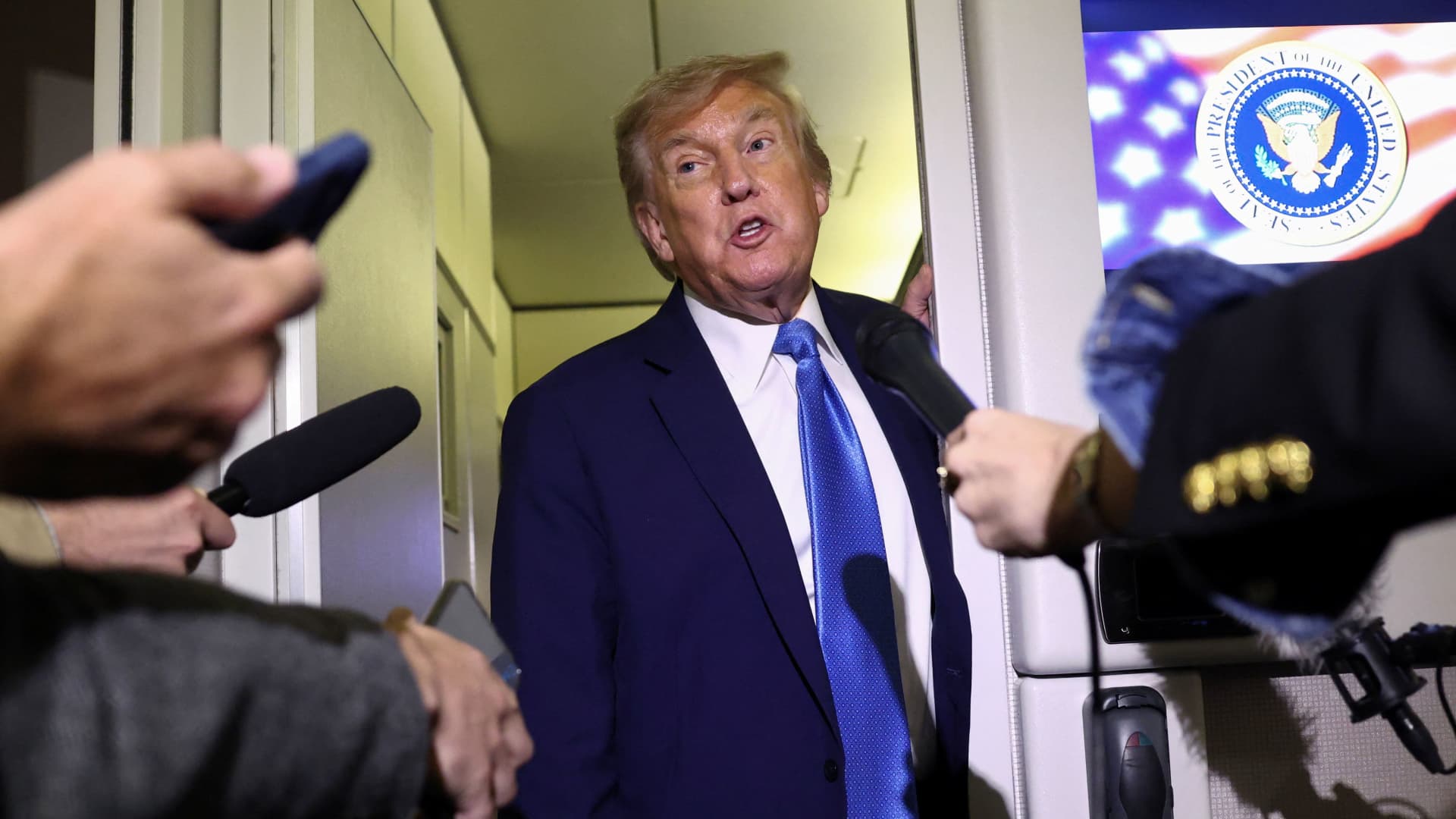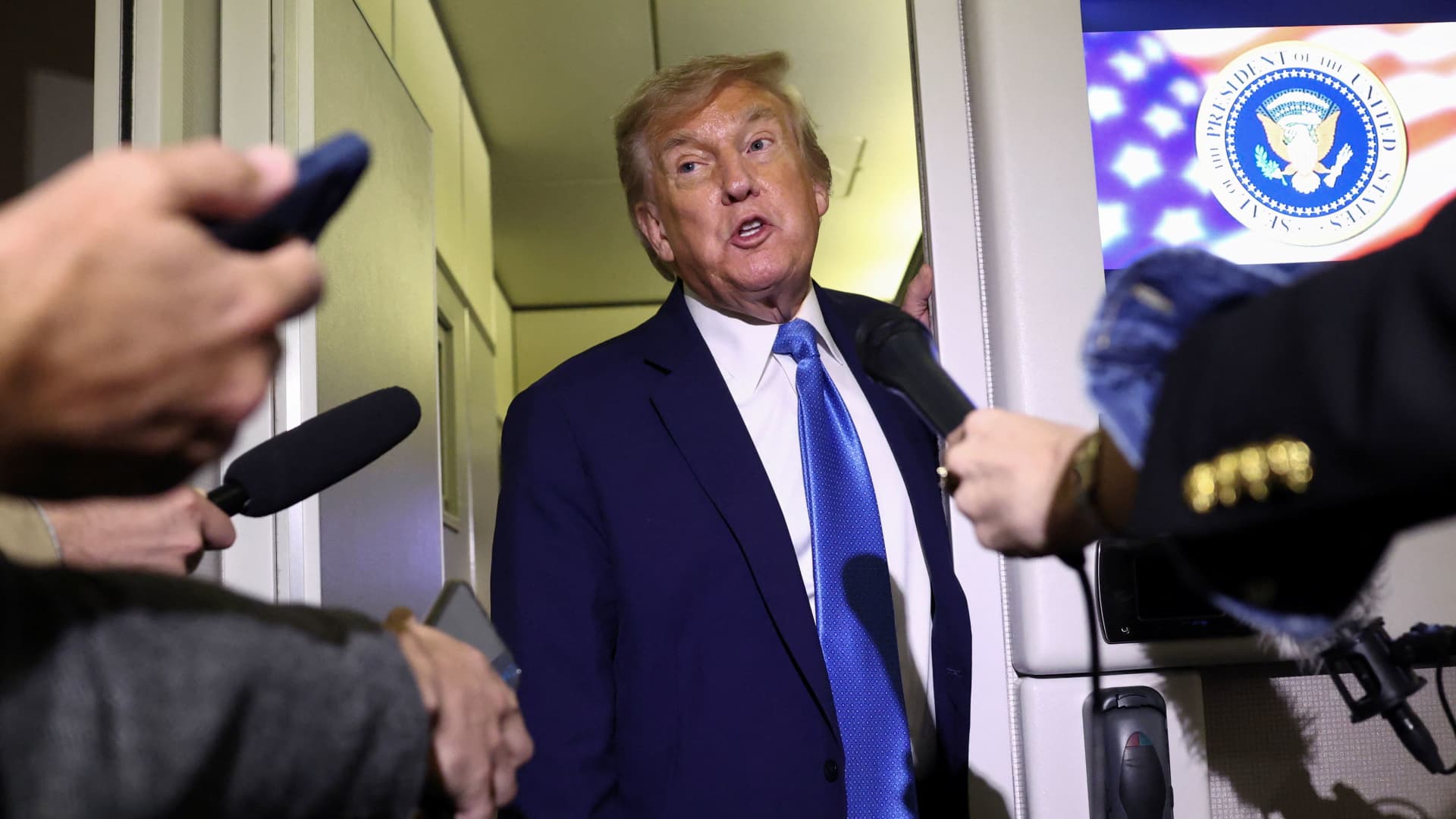The Volatile Intersection of Geopolitics and Market Sentiment
The recent escalation between Israel and Iran has captured global attention, with markets reacting swiftly to every development. A key factor in this dynamic is the influence of U.S. President Donald Trump’s statements, particularly those made via social media. This analysis explores the interplay between Trump’s rhetoric, the prospects for de-escalation, and the resulting market fluctuations, with a focus on stock performance and oil prices.
Initial Optimism and the Iranian Ceasefire Proposal
Initial reports suggested a potential pathway to de-escalation, with Iran seeking a ceasefire with Israel. This news prompted a positive market response, with U.S. stocks gaining and oil prices retreating. The market’s sensitivity to any news suggesting a cooling of the conflict was evident, reflecting a desire for stability. The joint statement issued by G7 leaders further reinforced this initial optimism, indicating a coordinated diplomatic effort.
The market’s reaction was a clear indication of its responsiveness to geopolitical developments. The initial optimism was driven by the possibility of a ceasefire, which would reduce the risk of a wider conflict and its potential impact on global supply chains. This period highlighted the market’s preference for stability and its ability to react positively to even tentative signs of de-escalation.
Trump’s Intervention and the Crushing of Ceasefire Hopes
However, this fragile optimism was swiftly undermined by President Trump’s actions. His abrupt departure from the G7 summit, coupled with a series of assertive social media posts, dramatically altered the narrative. Trump explicitly dismissed the possibility of a ceasefire, stating it “has nothing to do” with his focus, and instead demanded “UNCONDITIONAL SURRENDER!” from Iran. This shift in tone, delivered directly to the public through social media, effectively extinguished hopes for a quick resolution.
The impact on the markets was immediate and significant. Reports consistently documented a reversal in market sentiment following these posts. U.S. stocks retreated, with major indices such as the S&P 500, Dow Jones Industrial Average, and Nasdaq Composite all experiencing declines. The repeated emphasis on Trump’s social media activity as a catalyst for these market movements underscores the unique power he wields in shaping investor perceptions.
Market Reactions: A Rollercoaster of Sentiment
The period analyzed reveals a clear pattern: positive news regarding potential ceasefire talks led to market gains, while Trump’s hawkish rhetoric triggered sell-offs. Oil prices mirrored this volatility, initially falling on news of Iran’s ceasefire overtures, then rising again after Trump’s escalation of the conflict. This demonstrates the market’s responsiveness to perceived shifts in the geopolitical landscape and the associated risks to supply chains.
The Dow’s nearly 300-point decline on one particular day serves as a stark example of the market’s sensitivity to Trump’s pronouncements. Even reports of Iran’s initial desire for a ceasefire were overshadowed by the President’s subsequent demands for unconditional surrender, highlighting the dominance of his messaging. The situation wasn’t simply about the conflict itself, but about the unpredictable nature of the U.S. response as dictated by the President.
Beyond the Immediate Conflict: Broader Market Concerns
While the immediate focus was on the Israel-Iran conflict, the reports also touch upon broader market anxieties. The mention of Regencell, an early-stage stock, and predictions about the best-performing assets over the next five years suggest investors are also seeking opportunities amidst the uncertainty. Furthermore, the reference to Tesla’s market capitalization decline and concerns about Trump’s policies indicate a wider apprehension about the potential economic consequences of his administration’s actions.
The reports also briefly allude to other global economic factors, such as Japan’s falling exports, demonstrating that the Israel-Iran conflict is not occurring in a vacuum. These factors contribute to a complex and interconnected global economic environment, where geopolitical events can have far-reaching consequences. Investors must navigate not only the immediate conflict but also the broader economic landscape, which is influenced by a multitude of factors.
The Power of Unconventional Communication
A key takeaway from this analysis is the unprecedented influence of a President’s social media activity on global markets. Trump’s direct communication to the public, bypassing traditional diplomatic channels, has created a highly volatile and unpredictable environment for investors. His willingness to publicly dismiss ceasefire efforts and demand unconditional surrender, delivered via platforms like Truth Social, has demonstrably impacted market sentiment and contributed to significant fluctuations in stock prices and commodity markets. This represents a departure from conventional presidential communication strategies and highlights the challenges of navigating a world where geopolitical events are often shaped by real-time social media interactions.
A New Era of Geopolitical Risk
The events surrounding the Israel-Iran conflict, as reported by CNBC, illustrate a new era of geopolitical risk. The traditional mechanisms of diplomacy and negotiation are increasingly overshadowed by the direct and often unpredictable pronouncements of powerful leaders. This creates a challenging environment for investors, who must now factor in the potential for rapid shifts in sentiment driven by social media activity. The market’s reaction to Trump’s actions serves as a cautionary tale, demonstrating the vulnerability of global financial systems to geopolitical shocks and the importance of understanding the dynamics of unconventional communication in the 21st century. The situation underscores the need for investors to remain vigilant, adaptable, and prepared for continued volatility in the face of an increasingly unpredictable geopolitical landscape. The ability to anticipate and respond to these shifts will be crucial for navigating the complex interplay between geopolitics and market sentiment in the years to come.












